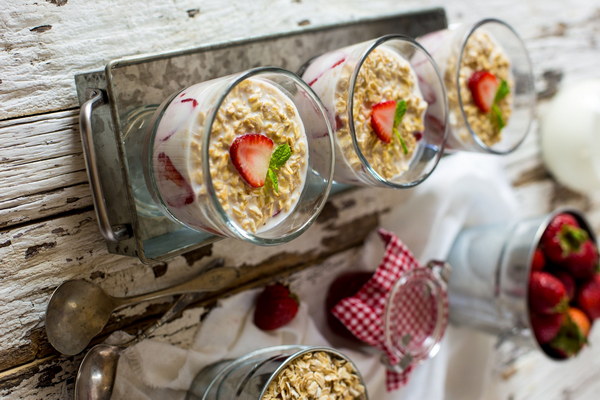Heart and BrainHealthy Diet A Comprehensive Guide to Nutrition for Wellness
Introduction:
Maintaining a heart and brain-healthy diet is essential for overall well-being and longevity. With the increasing prevalence of cardiovascular diseases and cognitive decline, it's crucial to understand the importance of proper nutrition in keeping your heart and brain in top shape. This comprehensive guide to heart and brain-healthy diet will provide you with valuable insights and practical tips to enhance your lifestyle and promote longevity.
1. Understanding the Basics of Heart and Brain-Healthy Diet:
A heart and brain-healthy diet focuses on reducing the risk of cardiovascular diseases and cognitive decline by promoting a balanced intake of essential nutrients. The key components of this diet include:
- Low in saturated and trans fats
- Rich in whole grains, fruits, vegetables, lean proteins, and healthy fats
- High in dietary fiber and antioxidants
- Limited in salt, sugar, and processed foods
2. Foods to Incorporate into Your Heart and Brain-Healthy Diet:
To maintain a heart and brain-healthy diet, include the following foods in your daily meals:
- Fruits: Berries, apples, oranges, grapes, and kiwis are rich in antioxidants and fiber, which help reduce inflammation and protect against cognitive decline.
- Vegetables: Dark leafy greens (spinach, kale, and broccoli), carrots, tomatoes, and bell peppers are high in vitamins, minerals, and antioxidants, supporting heart and brain health.
- Whole grains: Brown rice, whole wheat bread, quinoa, and oatmeal are rich in fiber, vitamins, and minerals, promoting a healthy heart and brain.
- Lean proteins: Fish, poultry, legumes, and tofu are excellent sources of high-quality proteins and omega-3 fatty acids, which are essential for heart and brain health.
- Healthy fats: Avocados, nuts, seeds, and olive oil are packed with monounsaturated and polyunsaturated fats, which can help lower cholesterol levels and reduce the risk of cardiovascular diseases.
- Herbs and spices: Turmeric, ginger, garlic, and cinnamon are known for their anti-inflammatory and antioxidant properties, supporting heart and brain health.
3. Foods to Avoid in a Heart and Brain-Healthy Diet:
To maintain a heart and brain-healthy diet, it's essential to limit or avoid the following foods:
- Saturated and trans fats: Found in fried foods, baked goods, and processed snacks, these unhealthy fats can increase cholesterol levels and raise the risk of cardiovascular diseases.
- High-sodium foods: Processed meats, canned foods, and fast foods are high in sodium, which can increase blood pressure and lead to heart disease.
- Refined carbohydrates: White bread, pasta, and sugary drinks are high in refined carbohydrates, which can cause blood sugar spikes and contribute to weight gain and cardiovascular diseases.
- Artificial sweeteners: Studies have shown that artificial sweeteners may increase the risk of cardiovascular diseases and cognitive decline.
4. Tips for a Heart and Brain-Healthy Diet:

To make the transition to a heart and brain-healthy diet more manageable, consider the following tips:
- Plan your meals: Create a weekly meal plan that includes a variety of heart and brain-healthy foods.
- Cook at home: Cooking at home allows you to control the ingredients and portion sizes, ensuring a nutritious diet.
- Stay hydrated: Drink plenty of water throughout the day to support heart and brain health.
- Limit alcohol and caffeine: Excessive alcohol and caffeine consumption can negatively impact heart and brain health.
- Be mindful of portion sizes: Avoid overeating and practice mindful eating to savor each bite.
Conclusion:
A heart and brain-healthy diet is a crucial component of maintaining overall well-being and longevity. By incorporating nutrient-rich foods into your daily meals and avoiding unhealthy options, you can significantly reduce the risk of cardiovascular diseases and cognitive decline. Remember to consult with a healthcare professional or registered dietitian before making significant changes to your diet. Start enjoying the benefits of a heart and brain-healthy diet today!









